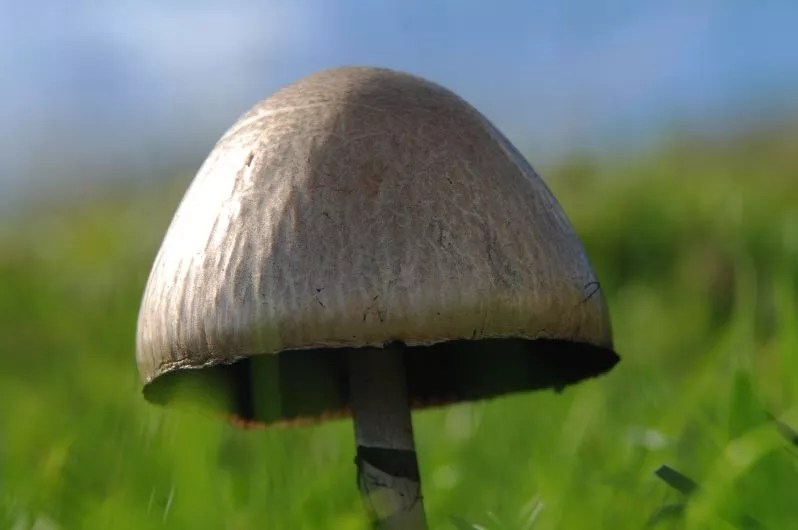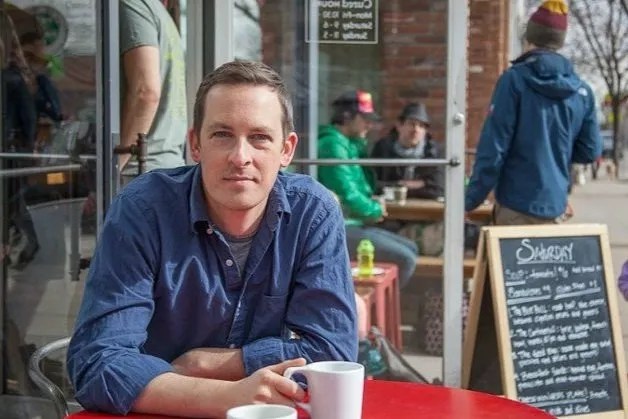
Flickr/polandeze

Audio By Carbonatix
Just three months after voters approved Proposition 122, a landmark initiative decriminalizing psilocybin mushrooms and other psychedelics statewide while also legalizing psychedelic therapy, advocates of psychedelic reform worry that lawmakers will try to limit personal rights. A couple of legislators confirmed those suspicions during a recent public appearance, while several lobbying groups and nonprofits are gearing up to add more guardrails to personal psychedelic use, cultivation and more.
Approved by just under 54 percent of Colorado voters, Prop 122 didn’t put limits on the personal possession and cultivation of psilocybin mushrooms, nor did it give local governments the ability to ban psychedelic therapy centers, which are set to begin opening in 2024. Prop 122 didn’t permit any retail psychedelic operations, just healing centers, however, with state regulators charged with evaluating DMT, ibogaine and mescaline for potential legalization by 2026.
The proposal’s overall language was designed to protect user access and prevent dependency on commercialization, according to psychedelic advocates, but there’s a move at the Colorado Legislature to change that.
State Senator Steve Fenberg acknowledged the effort during a town hall meeting with state Representative Julie Amabile on February 13, although he insisted that he wasn’t trying to roll back the voter-approved measure.
“Now what typically happens when a big ballot measure like that is passed, is the legislature has to pass implementing language and legislation to facilitate how it will actually happen in our government,” Fenberg told a Boulder County crowd. “That’s what happened after [marijuana was legalized]. It was a long process, like maybe a thousand-plus pages of statute that has been edited, revised, changed and confirmed to allow the marijuana industry and also the decriminalization of it to occur in the State of Colorado successfully. That’s what we will be doing this legislative session.”
Fenberg said that while he believes in medical psychedelic reform and wants to protect group and ceremonial psychedelic use, he “wasn’t necessarily the biggest fan” of how Prop 122 was written. He voted against the measure, but added that his “intentions are pure” regarding the extensive bill he plans to introduce that would further regulate therapy, the legal production of medicinal psilocybin and personal psychedelic rights.
Advocates of those rights got very vocal during the town hall. Psychedelic activist Ramzy Abueita had supported Initiative 61, a competing initiative that was less restrictive for personal and ceremonial use that failed to make the ballot; he told Fenberg that possession and home cultivation was a “nexus point that was of concern to the activist community.”
According to Abueita, he and fellow I-61 supporters persuaded Prop 122 backers not to include possession and home cultivation limits because that framework “creates scarcity and empowers corporate interests to sort of dominate the industry.”
But Fenberg said that a forthcoming legislative proposal would include limits, whether in the form of cultivation, possession or transportation restrictions.
“There needs to be some rules just so people have clarity in what’s allowed in our society, and law enforcement needs to know if they pull over a truck on the highway full of mushrooms, is that personal use?” Fenberg asked. “According to the ballot measure, that could be.”

State Senate President Steve Fenberg.
senatedems.co
Colorado Counties, Inc., a nonprofit that represents county commissions across the state, is lobbying for personal possession limits, local control of home cultivation and allowing local jurisdictions to determine whether to let psychedelic healing centers or other businesses within their borders. The Colorado Municipal League, a similar organization for municipalities, and Blue Rising Together, a nonprofit group that primarily lobbies for gun control and commercial marijuana restrictions, are also pushing for psychedelic guardrails, according to CCI policy director Eric Bergman.
“What we’re really interested in is that [Prop 122] itself doesn’t provide any sideboards, and there are concerns that there are obvious opportunities for diversion, black market and gray market sales,” Bergman tells Westword. “This is a statutory measure, which means that we can change it.”
In addition to local control and limited personal cultivation and possession, Bergman says that his lobbying coalition is pushing for stiffer penalties for people who are caught selling psychedelics to kids. While the coalition doesn’t yet know what the proposed limit for mushroom possession or cultivation might look like, he says he’s concerned that out-of-state diversion will rise in the wake of Prop 122.
“I don’t know how you would think it’s okay to have unlimited grow opportunities. I really don’t. It’s one thing to say that this is permitted use…but to say that we have no limits at all on how much we can grow and have around just seems to invite that black-market element,” he says. “Right now, it’s just healing centers, but we all know where this is going. It’s just act one, scene one, and we will end up with dispensaries and commercial growing operations. Maybe not next year or the year after, but I guarantee it’s coming, so why not have this conversation now about local control and self-determination?”
Grassroots psychedelic advocates were also concerned about over-commercialization if Prop 122 passed, with indigenous and spiritual users pushing back against a state framework that permits only clinical or medically supervised use. Although Prop 122 has protections for religious use and personal freedoms, factions of the psychedelic community remained skeptical.
“What I’m hearing is that it’s now up to you all to protect the spirit of this measure,” Veronica Lightning Horse Perez, a Prop 122 proponent, told Fenberg and Amabile. “I really want to believe you, [but] it could be easier for you to limit personal use, especially when I’m sure most of you – hopefully not most of you, but many of you – might not have experiences yourselves with the medicine, or heard someone’s testimony about what it was able to do for them.”
The conversation echoed discussions over the ramifications of marijuana legalization after Coloradans approved Amendment 64 in 2012. While local control was included in Amendment 64’s language, as were possession and cultivation limits, home growing and medical marijuana purchasing rights in Colorado have been severely cut back since 2014, when recreational dispensaries began opening.
Psychedelic advocates say that Colorado’s marijuana legalization program is an example of what not to do, pointing to a reliance on commercial growing operations and industry ownership that is largely dominated by well-funded corporations and white males. Meanwhile, Fenberg and Bergman both cite the state’s marijuana regulations as a template to follow for psychedelics.
While both men acknowledge that more conversations are needed with state regulators and Prop 122 stakeholders before any bills are introduced, Fenberg believes that one is coming, perhaps later in the session. “Maybe I will definitely regret working on this issue at the end of this legislative session, but there’s no intention to roll it back, to recriminalize something,’ he said. “It is to make sure that everyone knows what the rules are so that when someone is using what this law allows, that they know what will get them arrested, what absolutely won’t because it’s protected by state law as approved by the voters.”
The Colorado Department of Regulatory Agencies is the designated agency in charge of Prop 122’s implementation. Governor Jared Polis recently announced fifteen nominees for the Natural Medicine Advisory Board, which will be tasked with helping the legal transition. But first, its members must be approved by the Colorado Senate, where Fenberg is president.